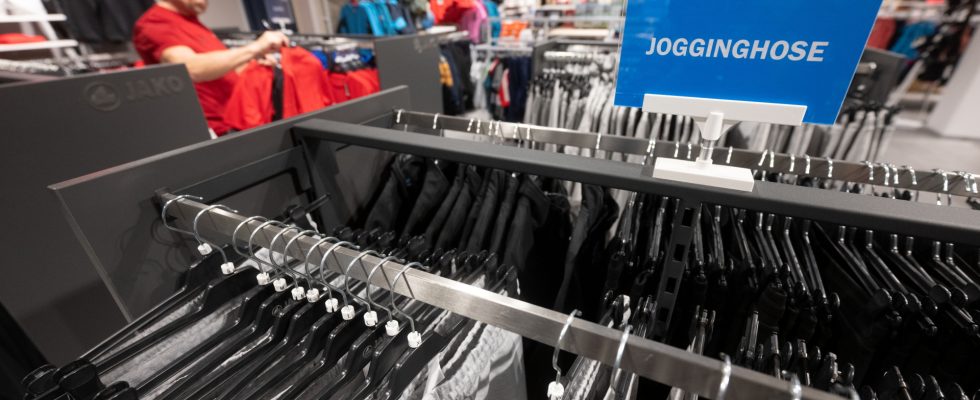Status: 04/25/2023 08:29 a.m
German textile companies came under criticism in 2022 because products may have been made with materials from the Chinese province of Xinjiang. What has happened since then?
It was T-shirts, shirts and sweaters from Adidas, Hugo Boss and Puma NDR-Had reporters analyze it in 2022. The question is: Does the cotton used come from the Chinese province of Xinjiang? A UN special report had identified forced labor there.
Traces of cotton discovered during analysis
Adidas, Boss and Puma all agreed at the time that their products came from somewhere else. And yet the analysis found traces of cotton from Xinjiang. The new supply chain law has been in force in Germany since January, and the ARD–Podcast World.Power.China asked the companies what happened since the broadcast a year ago.
Puma wrote:
We launched our own investigations as soon as we heard of the allegations against us. In addition, we have had the products in question examined by an independent laboratory. The laboratory came to the conclusion that the origin of the cotton cannot be determined with absolute certainty. The exact origin cannot be reliably determined when cotton from multiple sources is blended together – which is common in the manufacture of cotton yarn.
This makes it clear how difficult it is to effectively monitor suppliers for compliance with human rights. Adidas had 2022 because of the NDR-Consignment according to own statement checked delivery documents and above all the certificates of the substances. Result: The countries of origin were Brazil, India and the USA.
Difficult supply chains
Hugo Boss also emphasizes that it does not use any goods from Xinjiang. If suppliers violate human rights, Boss would terminate the cooperation if in doubt, the company said. But how can you be sure? The research of NDR revealed that independent inspectors in China are being pressured.
And there is another problem. “Many companies, especially the large ones, sometimes manage tens of thousands of suppliers, who in turn have one supplier and who also use other suppliers,” says Maximilian Butek from the German Chamber of Commerce Abroad in Shanghai. “In practice, I think it is hardly possible to rule out 100 percent that none of these suppliers violate the law.”
US authorities are stricter
The new German supply chain law extends to the suppliers who lead directly to the finished product. But if an EU directive follows in ten years, then companies will have to control the entire chain of their suppliers. And the EU plans that the entrepreneur is liable if human rights are violated during production for him.
Sarah Brückner from the Association of German Machine and Plant Builders VDMA expects serious consequences: “In many cases, the companies will withdraw from the markets if the European supply chain law comes as planned. Because the liability risks are then simply too great.”
But enormous risks already exist. The USA places all products from Xinjiang under the general suspicion of forced labor. Result: import ban. The US authorities require proof from the outset that imported goods were manufactured without forced labor. If someone violates the regulation, American customs may confiscate the entire goods. And Xinjiang means in this case: The USA wants proof of all suppliers – down to the smallest particle.
Textile industry in China: Protects supply chain law from forced labor
Astrid Freyeisen, BR, April 25, 2023 8:20 a.m

